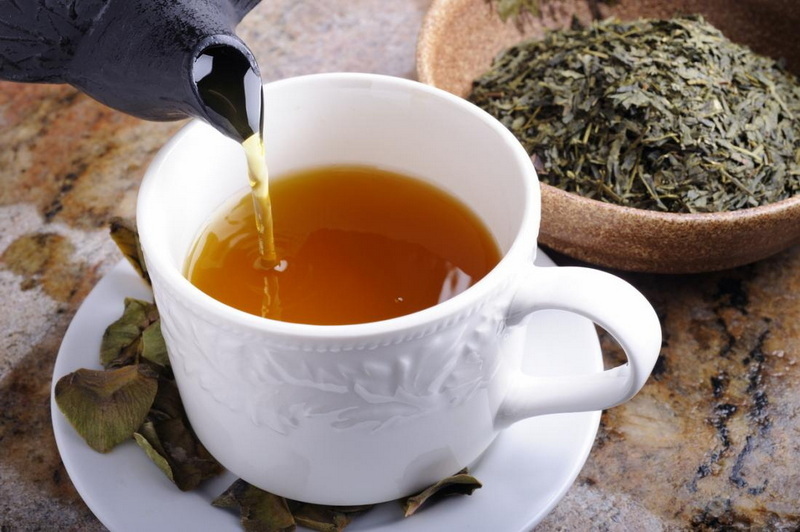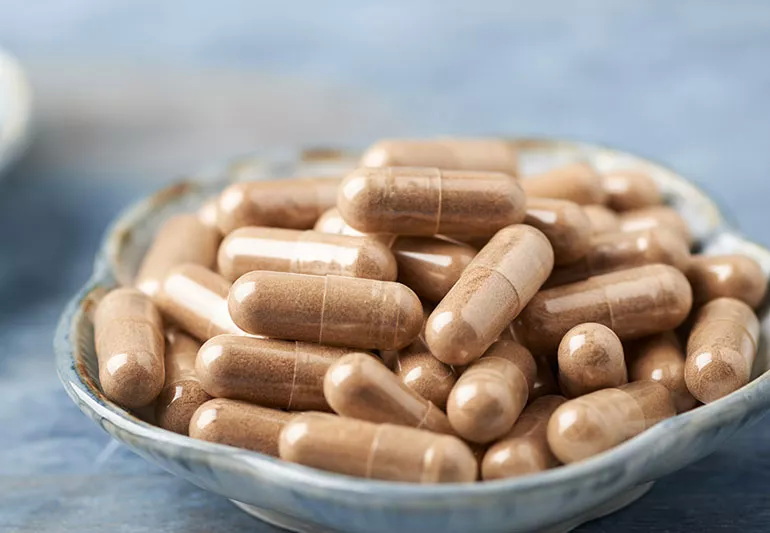Content Menu
● The Power of Green Tea Extract
● Health Benefits of Green Tea Extract
>> 1. Antioxidant Powerhouse
>> 2. Metabolism Boost and Weight Management
>> 3. Heart Health Support
>> 4. Brain Function and Neuroprotection
>> 5. Liver Protection
>> 6. Skin Health
>> 7. Cancer Prevention
● How to Use Green Tea Extract
● Potential Side Effects and Precautions
● Conclusion
● Frequently Asked Questions
>> 1. How much green tea extract should I take daily?
>> 2. Can green tea extract help with weight loss?
>> 3. Are there any side effects of taking green tea extract?
>> 4. Can I take green tea extract instead of drinking green tea?
>> 5. Is green tea extract safe for everyone?
● Citations:
Green tea extract has gained significant popularity in recent years due to its potential health benefits. This concentrated form of green tea is packed with powerful compounds that can have various effects on the human body. In this comprehensive article, we'll explore the many ways green tea extract can impact our health and well-being.

The Power of Green Tea Extract
Green tea extract is derived from the leaves of the Camellia sinensis plant, the same plant used to make green tea. However, the extract is a more concentrated form, often containing higher levels of beneficial compounds than a typical cup of green tea.
The main active ingredients in green tea extract include:
- Catechins (particularly epigallocatechin gallate or EGCG)
- Caffeine
- L-theanine
- Polyphenols
These compounds work synergistically to produce various effects on the body, from boosting metabolism to protecting against chronic diseases.
Health Benefits of Green Tea Extract
1. Antioxidant Powerhouse
One of the most significant benefits of green tea extract is its high antioxidant content. Antioxidants help protect our cells from damage caused by free radicals, which are unstable molecules that can lead to oxidative stress and contribute to various diseases.
The catechins in green tea extract, especially EGCG, are potent antioxidants that can neutralize harmful free radicals and reduce oxidative stress in the body. This antioxidant activity may help prevent chronic diseases and slow down the aging process.
2. Metabolism Boost and Weight Management
Green tea extract has been shown to have a positive effect on metabolism and weight management. The combination of caffeine and catechins in the extract can increase thermogenesis, the process by which the body burns calories to produce heat.
A study involving 56 obese individuals found that taking green tea extract for 12 weeks led to significant reductions in body weight, body mass index (BMI), and waist circumference. While these results are promising, it's important to note that green tea extract should be used in conjunction with a healthy diet and regular exercise for optimal weight management.
3. Heart Health Support
Green tea extract may have a positive impact on cardiovascular health. Research suggests that the polyphenols in green tea can help reduce the risk of heart disease by:
- Lowering total cholesterol levels
- Increasing HDL (good) cholesterol
- Reducing LDL (bad) cholesterol oxidation
- Improving blood flow and vascular function
A study of 56 obese individuals with high blood pressure found that taking 379 mg of green tea extract daily for three months led to significant reductions in blood pressure and improvements in lipid profiles.
4. Brain Function and Neuroprotection
The combination of caffeine and L-theanine in green tea extract can have positive effects on brain function. Caffeine is a well-known stimulant that can improve alertness and cognitive performance, while L-theanine promotes relaxation without causing drowsiness.
Moreover, the antioxidants in green tea extract may help protect brain cells from oxidative stress and reduce the risk of neurodegenerative diseases such as Alzheimer's and Parkinson's. Some studies suggest that regular consumption of green tea or its extract may improve memory and cognitive function in older adults.
5. Liver Protection
Green tea extract may have protective effects on the liver. Some studies have shown that the antioxidants in green tea can help reduce the risk of liver diseases and improve liver function in individuals with non-alcoholic fatty liver disease (NAFLD).
However, it's crucial to note that excessive consumption of green tea extract can potentially harm the liver. Always follow recommended dosages and consult with a healthcare professional before starting any new supplement regimen.
6. Skin Health
The antioxidants in green tea extract may benefit skin health by protecting against UV damage and reducing inflammation. Some studies suggest that green tea extract can help improve skin elasticity, reduce the appearance of wrinkles, and even help manage acne.
7. Cancer Prevention
While more research is needed, some studies suggest that the antioxidants in green tea extract may help prevent the development and progression of certain types of cancer. The EGCG in green tea has been shown to inhibit tumor growth and induce cancer cell death in laboratory and animal studies.
It's important to note that while these results are promising, more human studies are needed to fully understand the potential cancer-fighting properties of green tea extract.
How to Use Green Tea Extract
Green tea extract is available in various forms, including capsules, liquid extracts, and powders. The recommended dosage can vary depending on the specific product and its concentration of active compounds.
Generally, a daily dose of 250-500 mg of green tea extract is considered safe for most adults. However, it's essential to follow the manufacturer's instructions and consult with a healthcare professional before starting any new supplement regimen.
Potential Side Effects and Precautions
While green tea extract is generally considered safe for most people when used in moderation, there are some potential side effects and precautions to keep in mind:
1. Caffeine sensitivity: Green tea extract contains caffeine, which can cause side effects such as insomnia, nervousness, and increased heart rate in sensitive individuals.
2. Iron absorption: The tannins in green tea extract may interfere with iron absorption. If you have iron-deficiency anemia, it's best to take green tea extract between meals.
3. Liver concerns: In rare cases, high doses of green tea extract have been associated with liver damage. Always follow recommended dosages and consult with a healthcare professional if you have any liver conditions.
4. Interactions with medications: Green tea extract may interact with certain medications, including blood thinners and some antibiotics. Always inform your healthcare provider about any supplements you're taking.
5. Pregnancy and breastfeeding: Pregnant and breastfeeding women should consult with their healthcare provider before using green tea extract, as high doses of caffeine may pose risks.
Conclusion
Green tea extract offers a wide range of potential health benefits, from boosting metabolism and supporting heart health to protecting against chronic diseases. Its high antioxidant content and unique combination of beneficial compounds make it a popular choice for those looking to improve their overall health and well-being.
However, it's important to remember that while green tea extract can be a valuable addition to a healthy lifestyle, it's not a magic bullet. A balanced diet, regular exercise, and overall healthy habits are crucial for maintaining optimal health.
As with any supplement, it's essential to use green tea extract responsibly and consult with a healthcare professional before adding it to your routine, especially if you have any pre-existing health conditions or are taking medications.

Frequently Asked Questions
1. How much green tea extract should I take daily?
The recommended daily dose of green tea extract typically ranges from 250-500 mg. However, the optimal dosage can vary depending on the specific product and its concentration of active compounds. Always follow the manufacturer's instructions and consult with a healthcare professional for personalized advice.
2. Can green tea extract help with weight loss?
While some studies suggest that green tea extract may aid in weight loss by boosting metabolism and fat oxidation, its effects are generally modest. Green tea extract should be used in conjunction with a healthy diet and regular exercise for optimal weight management results.
3. Are there any side effects of taking green tea extract?
Most people tolerate green tea extract well when taken in recommended doses. However, some potential side effects include caffeine-related symptoms (such as insomnia or nervousness), interactions with certain medications, and rarely, liver problems with high doses. Always consult with a healthcare professional before starting any new supplement regimen.
4. Can I take green tea extract instead of drinking green tea?
While green tea extract offers a concentrated dose of beneficial compounds found in green tea, it may not provide all the same benefits as drinking whole green tea. Drinking green tea provides additional hydration and may offer a more balanced mix of compounds. Both forms can be beneficial, and the choice often depends on personal preference and convenience.
5. Is green tea extract safe for everyone?
Green tea extract is generally considered safe for most adults when used as directed. However, it may not be suitable for everyone. Pregnant or breastfeeding women, people with certain medical conditions (such as liver disease or iron-deficiency anemia), and those taking specific medications should consult with a healthcare professional before using green tea extract.
Citations:
[1] https://www.healthline.com/nutrition/10-benefits-of-green-tea-extract
[2] https://www.urmc.rochester.edu/encyclopedia/content?contenttypeid=19&contentid=GreenTeaExtract
[3] https://pmc.ncbi.nlm.nih.gov/articles/PMC6412948/
[4] https://www.alamy.com/stock-photo/green-tea-extract.html
[5] https://www.youtube.com/watch?v=kmlcjBJ05Sk
[6] https://www.youtube.com/watch?v=eMuE16vLV_s
[7] https://www.mountsinai.org/health-library/herb/green-tea
[8] https://www.freepik.com/free-photos-vectors/green-tea-extract
[9] https://www.youtube.com/watch?v=6-2FJMtvcNA
[10] https://health.clevelandclinic.org/green-tea-extract-a-better-way-to-boost-energy-or-not





























